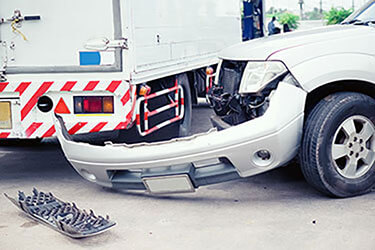

Was your vehicle involved in an accident while you weren’t behind the wheel? You may have grounds for fighting the claim! Contact an experienced Florida car accident lawyer today for a no-cost, no-obligation consultation: 850-444-4878

If you have heard of the dangerous instrumentality doctrine—sometimes known as vicarious liability—you might wonder how it affects you if you sustain injuries in a Florida car accident.
Whether you sustained injuries while driving someone else’s car or you were struck by someone who was driving a car they didn’t own, you may have the right to recover compensation for your injuries and other damages.
However, because this unusual legal doctrine can cause confusion, talking to a qualified Florida car accident attorney from Emmanuel, Sheppard & Condon is a great way to learn more about how these laws could affect your case.
Dangerous instrumentality refers to the doctrine that holds the owner of an inherently dangerous tool responsible for any injuries or damage the tool might cause.
This legal concept is also known as vicarious liability.
In this case, the tool in question is a passenger vehicle such as a car, SUV, or pickup truck.
Whoever was behind the wheel, the vehicle owner—and, by extension, the vehicle owner’s insurance carrier—is liable for economic and non-economic damages the result from the negligence or wrongful actions of another driver.
The one caveat is that the vehicle owner must have given permission voluntarily for the other individual to use the vehicle.
If you have an accident while driving someone else’s vehicle, your injuries and other damages should be covered by the vehicle owner’s insurance.
In Florida, auto insurance coverage follows the vehicle first and the driver second.
As long as the vehicle owner gave you permission to use the vehicle, you should be covered—unless their policy specifically excludes you.
Because Florida is a no-fault state, anyone who is involved in an accident must look first to the vehicle owner’s personal injury protection (PIP) insurance coverage, regardless of who was at fault.
However, if your damages exceed the vehicle owner’s PIP limits, you can potentially seek compensation from the at-fault party’s insurer.
Depending on the extent of your losses, you could be eligible to recover compensation for your medical treatment and care, lost income, pain and suffering, etc.
If someone crashed your car and the victims look to you for compensation, you may have grounds for fighting the claim, depending on who was driving. Possible exceptions in this case include:
Having a car accident lawyer to handle your case can potentially help in addressing these and other exceptions to the vicarious liability doctrine.
Whether someone borrowed your car and caused an accident, or you were involved in an accident caused by someone in a borrowed vehicle, a car accident attorney can help.
An experienced attorney can evaluate the details of your case and help you explore your options.
Whether you need help recovering compensation for your own injuries or a family member was hurt in a motor vehicle collision caused by a non-owner, your attorney can fight for your legal rights.
Before you make any decisions or give a statement to any insurance company, contact one of the experienced Florida personal injury lawyers of Emmanuel, Sheppard & Condon.
To help you understand your options and get started with the legal process, we offer a no-cost, no-obligation consultation.
We never charge you any legal fees until we recover compensation for you.
Contact us today to learn more or to speak to a car accident lawyer about Florida’s dangerous instrumentality laws.